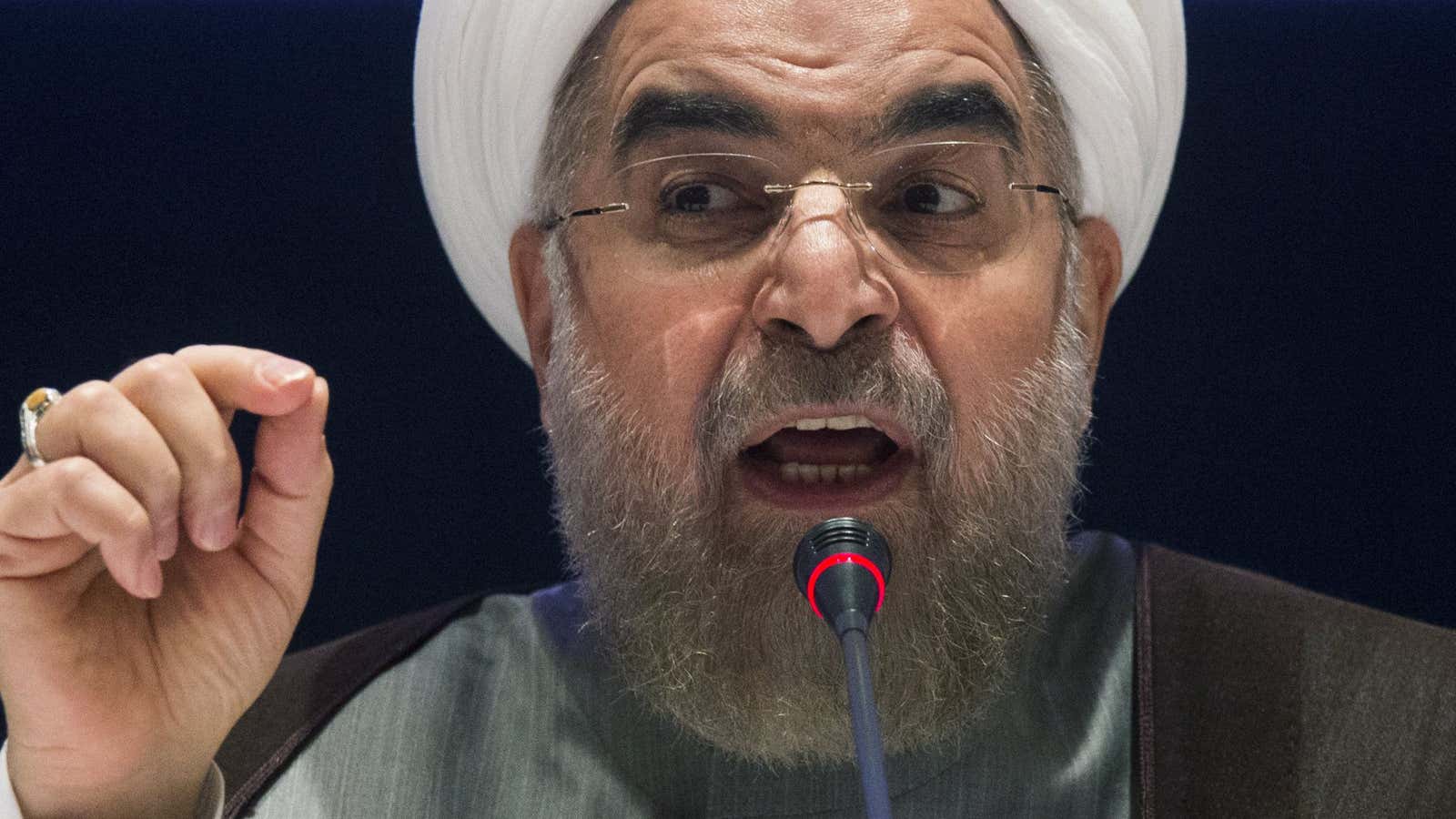Something fascinating just came over the transom from Tehran: In an interview to the state-owned news service IRNA, president Hassan Rouhani threatened that “if the other side breaches the deal, we will go back to the old path, stronger than what they can imagine.”
We can set aside the belligerent tone here: Bluster and bullying have long been the Tehran regime’s stock-in-trade. But it’s worth spending a few minutes parsing Rouhani’s words. The “other side” is the collection of world powers, known as the P5+1, that are currently negotiating with Iran over its nuclear program. (They’ve just extended the deadline by a week, to July 7.) The “deal” is a long-sought bargain that would allow the regime in Tehran to pursue peaceful nuclear technology while the world lifts economic sanctions on Iran.
But what, pray, is “the old path” along which the cleric-president is threatening to take his country? Since its secret nuclear plant in Natanz was revealed in 2002, the Iranian regime has sworn, over and over again, that it has never pursued nuclear weapons. Among other things, the country’s supreme leader, Ayatollah Ali Khamenei, has said that nuclear weapons are “un-Islamic,” and therefore taboo for the Islamic Republic.
If we’re to believe the regime’s claim, then Rouhani’s threat makes no sense. The “old path” would simply be more ”peaceful” nuclear research, allowing the sanctions to continue devastating the Iranian economy. That’s not so much a threat as a flagellant’s cry for help: “If you go back on your word, I’ll hurt myself.”
It’s possible Rouhani is merely bluffing: There’s no “old path,” and Tehran is simply trying to frighten the P5+1 into relenting on the remaining sticking points at the negotiating table in Vienna. (To his critics, president Barack Obama’s claim that the US will walk away from negotiations if it doesn’t get a good deal smacks of bluff, too.)
The alternative is that Rouhani has unwittingly revealed that Iran was indeed pursuing nukes. That would be a real threat, especially if he is also sincere in pursuing this path “stronger than what they can imagine.” Revealingly, even as it has suspended uranium enrichment activities while negotiating with the P5+1, Iran has refused to let the IAEA, the international nuclear watchdog, to investigate whether it has been pursuing nuclear-weapons development.
So, what’s Rouhani’s game—bluff or blackmail? The P5+1 negotiators will call that one, hopefully by July 7.
